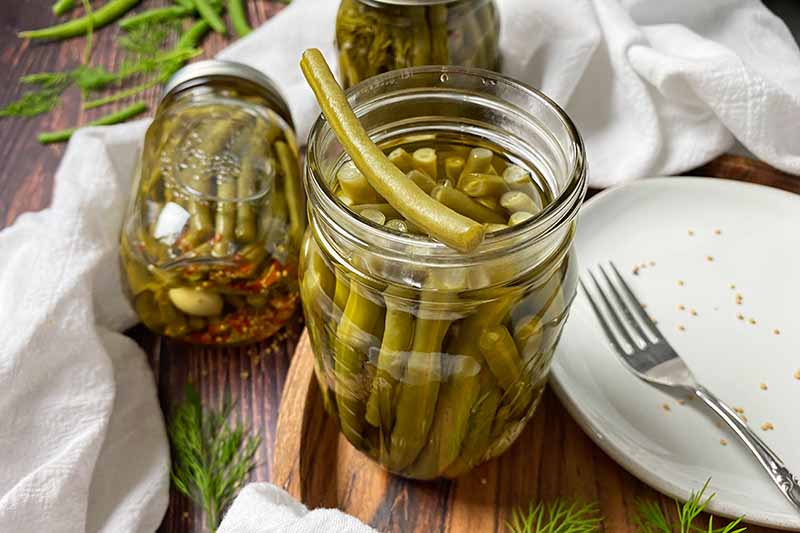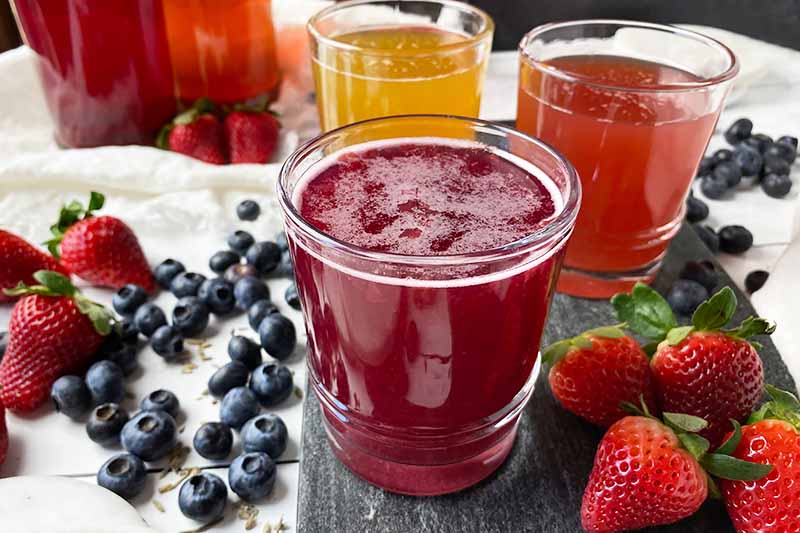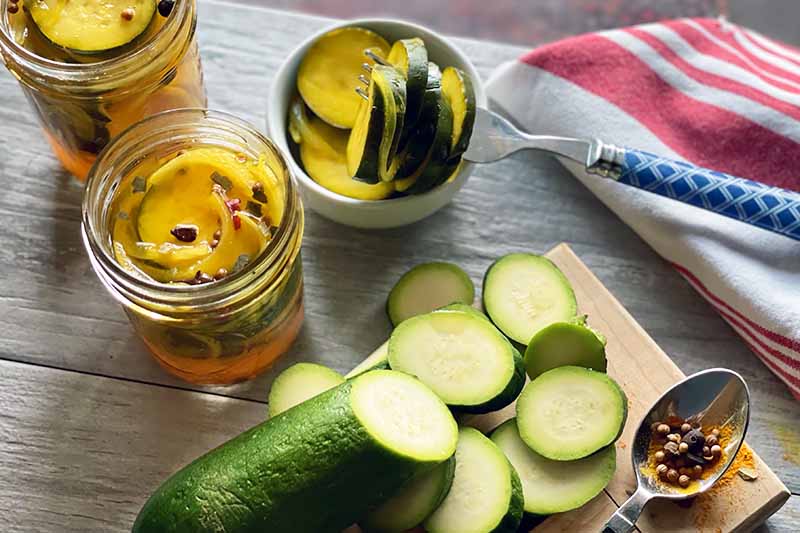Who doesn’t love a good sandwich spread?
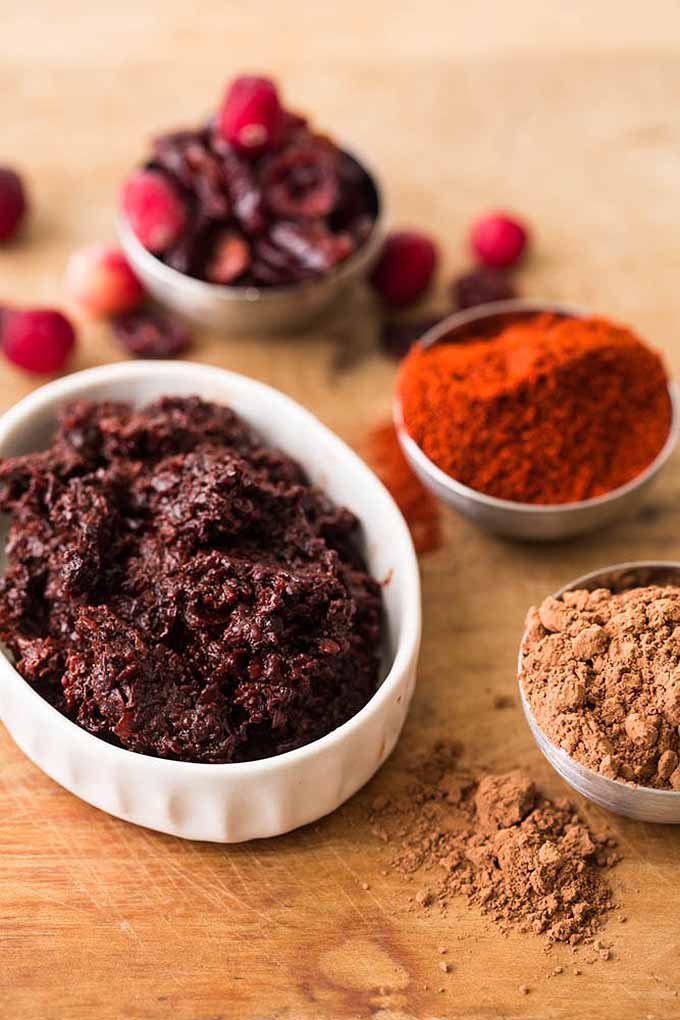
Set the mustard aside, and save the homemade mayonnaise recipe for later. You are going to be drooling for this Chocolate-Cranberry Mole from Kirsten and Christopher Shockey, authors of the book Fiery Ferments: 70 Stimulating Recipes for Hot Sauces, Spicy Chutneys, Kimchis with Kick, and Other Blazing Fermented Condiments.
You might remember that we interviewed the Shockeys in Episode 4 of the Foodal Podcast, and these fermentation experts have a delicious recipe to share, just in time for the holidays.

With a 2-alarm heat index (out of 5, with 5 being the hottest), you’re going to want to spread this mole on everything from grilled chicken breast to leftover turkey sandwiches. It makes a lovely addition to a cheese platter. And, according to the Shockeys, it’s even delicious right out of the jar!
As an added bonus, Kirsten and Christopher even claim it makes a fantastic flavoring for homemade ice cream – but you’ll have to grab a copy of their book to try that recipe. It’s available on Amazon.
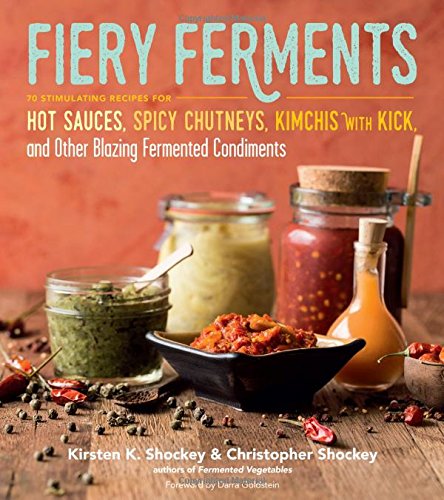
Fiery Ferments, available on Amazon
This fermented paste takes just 1 to 2 weeks to make, and it’s a great way to use up leftover whole cranberries, if you have them on hand. We like the tanginess of a 100% cranberry version, but you can also mix things up a bit with half a cup of dried cherries instead.

New to home fermentation? Don’t worry. Fiery Ferments provides all of the guidance you need to transform from eager beginner to accomplished novice in no time, with detailed tutorials, recommended equipment information, and a troubleshooting guide.
Once you’ve got the equipment and the process down, you’ll be filling your fridge with bubbling jars of delectable goodies, with a new weekend hobby to boot.
Before You Begin
There are many different types of home ferments that you can make in your own kitchen, from sauerkraut and kimchi to hot sauce and relish, and everything in between. Oh, and don’t forget the pickles!
Depending on the ingredients that you’ll be fermenting and the methods that you use to prepare and combine them, the techniques required may vary. For this particular recipe, we’re making a thick paste in a relatively small quantity.
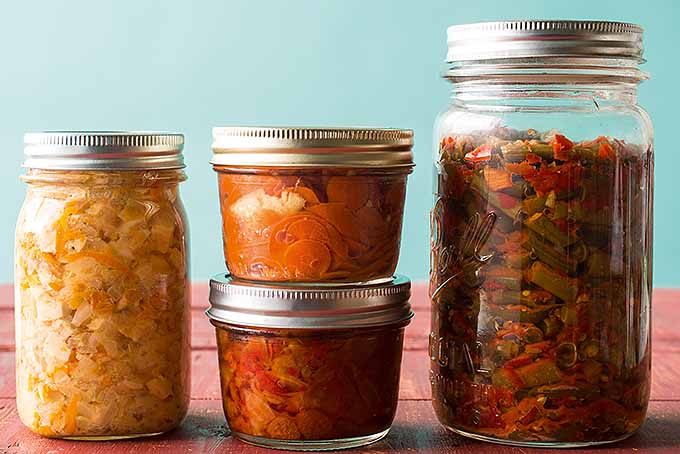
A few tips to keep in mind:
Thicker pastes and sauces are more dry than the pickle ferments that many DIYers are familiar with, and they won’t have a juicy layer of brine on top. Using a food processor or mortar and pestle to break down the ingredients is recommended.
This recipe also calls for a “cartouche” to cover the blended mixture after it’s packed into a jar. The Shockeys explain that in cooking terms, this is “a round piece of parchment paper placed on the surface of food, often under a saucepan lid to reduce evaporation. In the case of fermented pastes, we use a cartouche to reduce evaporation as well as air exposure.”
If you’ve ever bought a container of Fage yogurt, you know what they’re talking about. In addition to parchment, other materials and items can be used, such as grape leaves, thin plastic, or silicone.
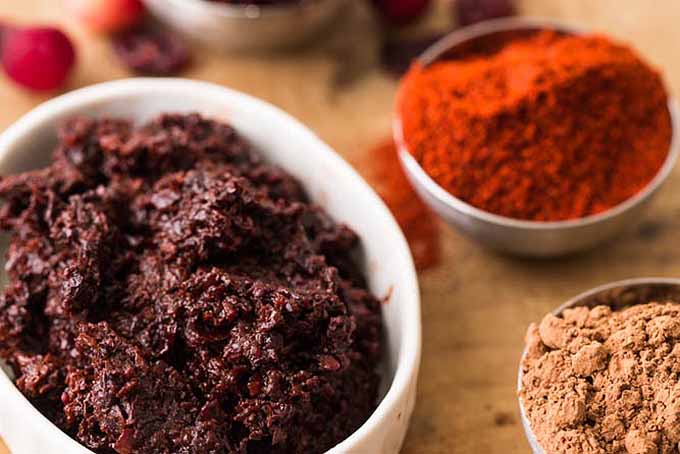
Rather than using a piece of plastic wrap, the Shockeys recommend a circle cut from a zip-top plastic bag to cap your ferment, since it’s more inert and less likely to react with the ingredients. Or, try a reusable circle cut from a Silpat or other silicone baking sheet liner.
When you’re packing your jars, you want to keep size in mind. This recipe makes about 1 1/2 pints of mole, so a two-pint jar may be a bit on the large side, whereas a few smaller pint-sized jars will do the job nicely.
You want to carefully press out any air pockets as you pack the jar, since you’re going for an anaerobic fermentation here – one in which the sauce or paste that you’re fermenting isn’t exposed to any air.
Leave about an inch of headroom to prevent overflow. And don’t forget about those jars once they’re packed. Keep an eye on them, and remember to press down the mixture if you see air pockets forming, or burp the lid if you notice a buildup of gas. This means it’s working!
The Recipe
- 4 cups fresh cranberries (1 pound)
- 1 cup dried cranberries
- 1/2 cup dried unsweetened cherries
- 5 tablespoons pasilla chili powder (2 ounces)
- 2 1/4 teaspoons cocoa powder
- 1/2 cup freshly squeezed orange juice
- 3/4 teaspoon salt
- Combine the fresh cranberries, dried cranberries, cherries, chili powder, and cocoa powder in a food processor. Add the orange juice and process the mixture to a paste consistency. Sprinkle in the salt.
- Pack the paste into a jar that is just the right size for your ferment, pressing out any air pockets as you go. (Note the yield on this recipe is about 1.5 pints). Leave about 1 inch of headspace.
- Press a piece of plastic (or other cartouche) against the surface of the ferment, being careful not to trap any air beneath it. Screw the lid down tightly.
- Set the jar in a corner of the kitchen to ferment, and watch for air pockets forming in the paste. If you see any, open the lid and press the paste back down. If the lid starts to bulge, simply open it for a moment to burp the ferment.
- Allow to ferment for 7 to 14 days. You will know it is ready when the cranberries have a delightful lemony flavor and all the flavors have mingled together.
- When it is ready, place a clean small round of plastic or parchment paper directly on top of the paste. Tighten the lid, then store in the fridge, where this ferment will keep for up to 12 months.
If you don't have dried unsweetened cherries, you can substitute an equal amount of additional dried cranberries.
Reprinted with permission from Fiery Ferments.
Nutritional Info*
This spread will keep in the refrigerator for up to 12 months, but we’re betting you’ll need to make a new batch long before the 1-year mark rolls around…
Healthy, Flavorful Ferments
If you haven’t already started fermenting your own sauces and spreads at home, we have just one question for you: What are you waiting for?!
Get ready to experience unparalleled flavor, paired with healthy bacteria that support gut health. As an alternative to traditional cranberry sauce or a flavorful addition to your spread of holiday leftovers, we hope you’ll give this recipe a shot this year.
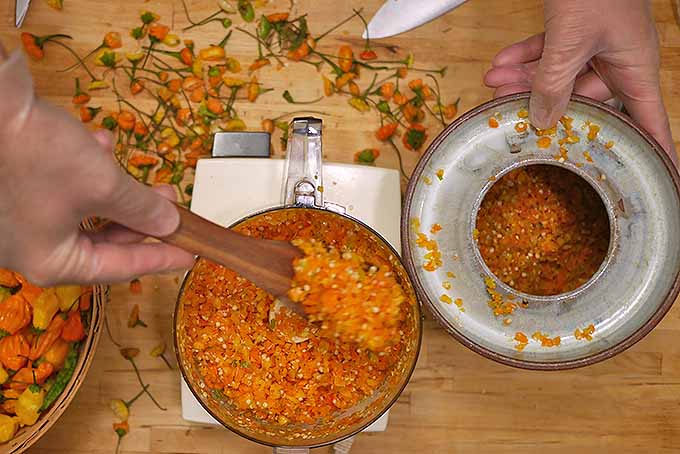
And for more cranberry recipes, try these tasty selections
What are you fermenting at home? Did you give this recipe a try? Tell us all about it in the comments below! And don’t forget to check out more of our favorite pickled and fermented recipes here.
Don’t forget to Pin It!
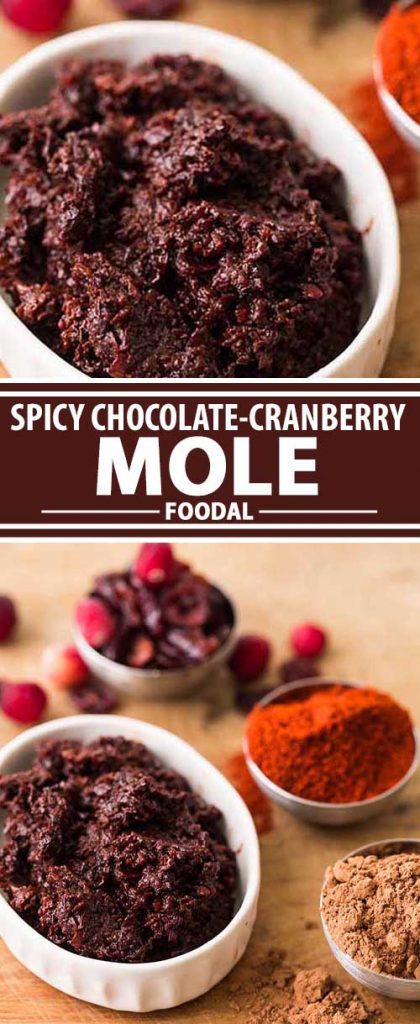
Photos by Christopher Shockey, Ariana Shockey, and Lara Ferroni. Used with permission.
*Nutritional information derived from a database of known generic and branded foods and ingredients and was not compiled by a registered dietitian or submitted for lab testing. It should be viewed as an approximation.
About Allison Sidhu
Allison M. Sidhu is a culinary enthusiast from southeastern Pennsylvania who has returned to Philly after a seven-year sojourn to sunny LA. She loves exploring the local restaurant and bar scene with her best buds. She holds a BA in English literature from Swarthmore College and an MA in gastronomy from Boston University. When she’s not in the kitchen whipping up something tasty (or listening to the latest food podcasts while she does the dishes!) you’ll probably find Allison tapping away at her keyboard, chilling in the garden, curled up with a good book (or ready to dominate with controller in hand in front of the latest video game) on the couch, or devouring a dollar dog and crab fries at the Phillies game.


